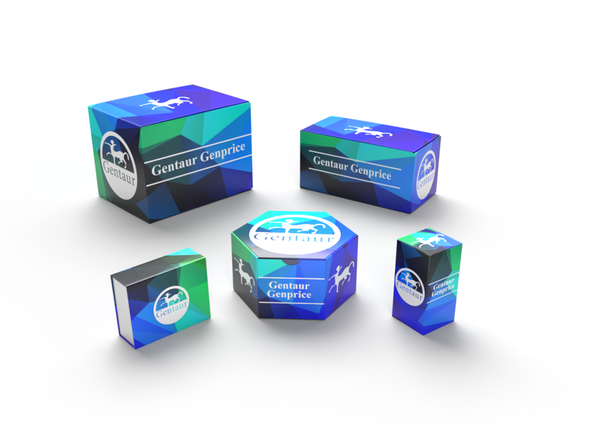Description
CRAT polyclonal Antibody | BS8160 | Gentaur UK, US & Europe Distribution
Host: Rabbit
Reactivity: Human,Mouse
Application: WB IF
Application Range: WB: 1:500~1:2000 IF: 1:50~1:200
Background: Aging affects oxidative metabolism in liver and other tissues. Carnitine acyltransferases are key enzymes of this process in mitochondria. Carnitine acetyltransferase (CAT, CRAT) catalyzes the reversible conversion of acetyl-CoA and carnitine to acetylcarnitine and CoA. The essential functions of CAT are to regenerate CoA, which allows peroxisomal b-oxidation to proceed, and to facilitate transport of acetyl moieties to mitochondria for oxidation. More than 70% of CAT is located in the mitochondrial matrix and it is also located in the endoplasmic reticulum, peroxisomal and mitochondrial inner membrane. An age associated decrease in CAT activity has been reported in many rat systems. The human gene encoding CAT maps to chromosome 9q34.1 and encodes a protein that contains a peroxisomal targeting signal and is expressed mostly in skeletal muscle, and less in heart, liver and pancreas. Total CAT activity is induced by acetate and fatty acids, and repressed by glucose.
Storage & Stability: Store at 4°C short term. Aliquot and store at -20°C long term. Avoid freeze-thaw cycles.
Specificity: CRAT polyclonal Antibody detects endogenous levels of CRAT protein.
Molecular Weight: ~ 60 kDa
Note: For research use only, not for use in diagnostic procedure.
Alternative Names: Carnitine O-acetyltransferase; Carnitine acetylase; Carnitine acetyltransferase; CAT; CrAT; CRAT; CAT1
Immunogen: Recombinant full length Human CRAT.
Conjugate: Unconjugated
Modification: Unmodification
Purification & Purity: The Antibody was affinity-purified from rabbit antiserum by affinity-chromatography using epitope-specific immunogen and the purity is > 95% (by SDS-PAGE) .
Pathway:






